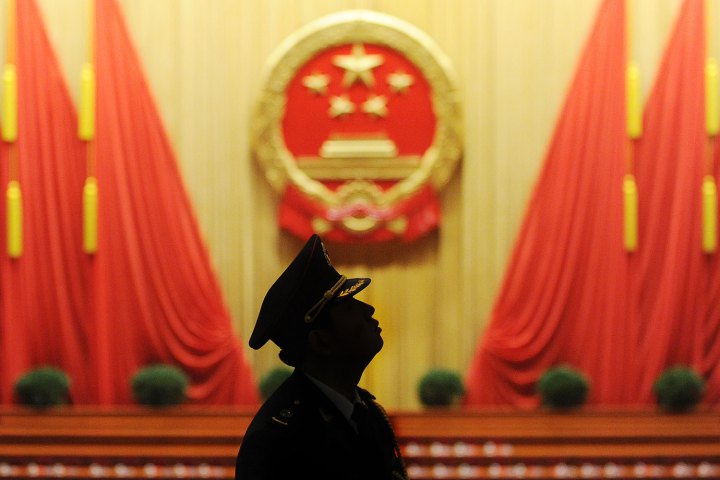China’s Central Commission for Discipline Inspection announced last week that it would gradually introduce new transparency requirements regarding officials’ financial dealings in order to combat corruption. On Tuesday, however, a new trial began for three activists who had called for similar asset disclosure rules. The group aborted earlier proceedings in October by dismissing their own lawyers in protest at allegedly unfair trial conditions. From Jonathan Kaiman at The Guardian:
The three activists, Liu Ping, Wei Zhongping, and Li Sihua – all residents of Xinyu City, in south-eastern China’s Jiangxi province – are the first group of people to be officially tried in connection with the New Citizens’ Movement, a loose-knit organisation founded in 2010 to promote civil society and government transparency.
Liu’s daughter Liao Minyue said that police had detained or arrested at least 12 defence witnesses in the run-up to proceedings. Despite the activists’ legal right to an open trial, authorities closed the courthouse to all but a carefully vetted group. “Apart from lawyers and family, it was all their workers,” she said in a phone interview. “It was absolutely not an open trial – there were no journalists, and no impartial observers.”
[…] “If [the New Citizen’s Movement] is being punished for just making a suggestion about how to put government promises into practice, how likely is it that these reforms will actually be put into practice?” said Maya Wang, a Hong Kong-based researcher at Human Rights Watch. “I think the government is redrawing its red line about what is allowed, and clearly street action with a clear political theme is not allowed.” [Source]
TIME’s Emily Rauhala writes that, by pursuing activists like Liu, Wei, Li, and fellow New Citizens Xu Zhiyong and Wang Gongquan, “officials are going after exactly the type of people the new regime should, theoretically, back.”
Supporters of the Jiangxi trio say their arrests are also about politics, not the law. Liu’s daughter, Liao Minyue, questions the nature of the charge and the handling of the case. Her mother was arrested for holding a sign on the grounds of their compound, not in the middle of a demonstration, says Liao, a 21-year-old student. “How can they claim that she had committed illegal assembly?” she asks. “My mom just wants to help the weak,” she says, and she wants to do so “through legal methods.” Will the law prevail? “I don’t think she will get a fair trial,” Liao says. Wang of Human Rights Watch agrees. Based on past trials, she calls the odds of justice “unlikely.”
If they are right, it does not bode well for Xi’s [anti-corruption] pledge. The Chinese President likes to talk about the “Chinese dream” — a slogan that draws rhetorical force from the fact that it means different things to different people. Indeed, Xu Zhiyong was once featured in the Chinese edition of Esquire magazine in a feature on the Chinese dream. “I wish our country could be a free and happy one,” he was quoted as saying.
Both Xi and Xu believe they are working to build a better China. It’s a shame, then, that Xu and his colleagues may have to do so from jail. [Source]








